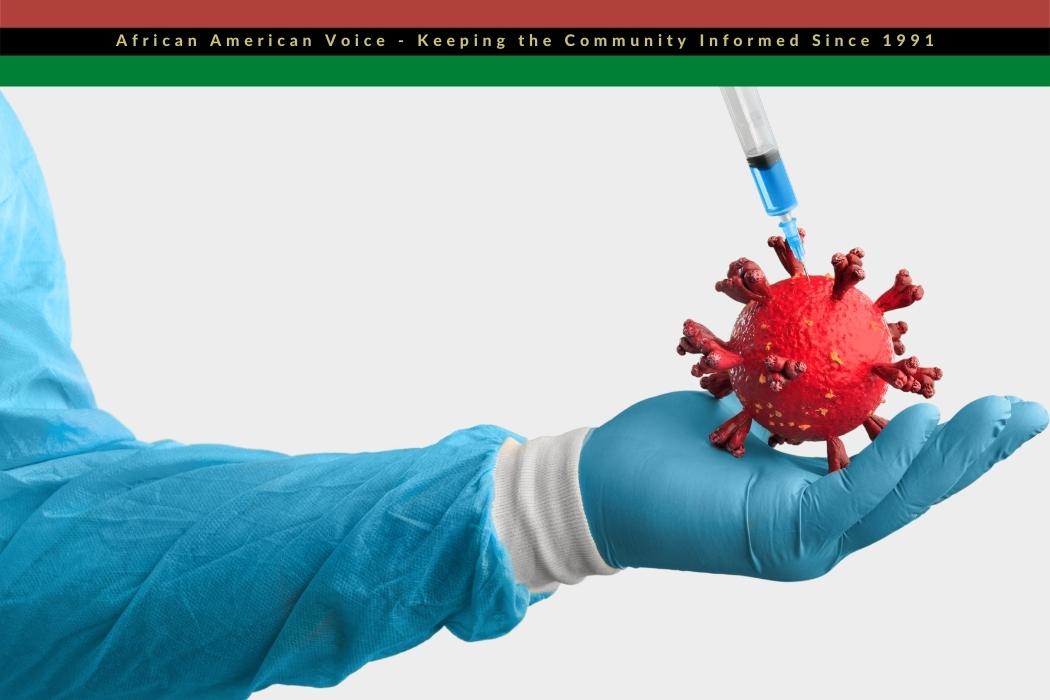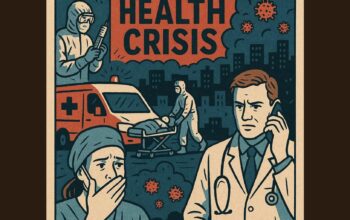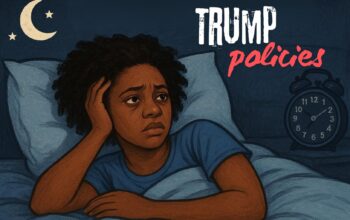by Ethnic Media Services
Even as Covid-19 hospitalization rates surge in some parts of the U.S., many public health experts are advising a shift from thinking of the crisis as a pandemic to an endemic, in which Covid will continue to be around for an unknown number of years, but at levels that are low and controllable.
At a round-table news briefing Jan 21, hosted by Ethnic Media Services, Dr. Ben Newman — chief virologist at Texas A&M University’s Global Health Research Complex — and Dr. Dali Fan, Health Science Clinical Professor at the University of California, Davis, debated the issue in a lively discussion.
Fan likened Covid-19 to the flu. “We have to learn to live with this virus, like we do with angina or cancer.”
Newman disagreed. “In the US, in a given year, the flu will kill between 12,000 and 16,000 people. And in a given year, Covid will several hundred thousand people. So this is a very much more serious problem.”
“I’m not done with this thing until we have exhausted every possible opportunity to get rid of Covid once and for all, because the reward for doing that is a world where you don’t have to worry about Covid, and you don’t have to live with that number of deaths and hospitalizations in the ones you love. And I think that’s worth fighting for,” he said.
QUESTIONS AND RESPONSES
The Centers for Disease Control announced Jan. 21 that booster shots of the Pfizer-BioNTech and Moderna vaccines have proven highly effective at preventing Omicron-related hospitalizations, and 90 percent effective at keeping people out of hospital after they had become infected with the Omicron variant.
DALI FAN — Well, that’s hardly surprising. We know that even the protective effect of two shots of the Pfizer vaccine, wanes after some time from 80 percent to about 30 percent, but a booster shot really elevates it back up to 70 percent. So this was a really good piece of news. The undertone of the news is: get vaccinated, get the booster shots.
Given that that the vaccine’s effectiveness wanes after a period of time, will we have to get fourth and fifth boosters as we go along, maybe boosters every six months?
BEN NEUMAN — It’s not clear whether this is the case, but at the moment, based on the data we have, I think I would agree that more boosters are likely.
Additional doses of the vaccine raise both the levels of cellular immunity and antibody immunity. And they give you both broader protection and more protection. They are a good idea, and they are the best idea that we have so far to deal with this virus.
DALI FAN — It is not only whether we should have a fourth or fifth shot or not, but also the time of those shots, whether it’s six months or 12 months or later. That is still unknown. I think time will tell.
When do we expect to see a peak of the Omicron variant? And what target number or percentage must we reach before we can say we have effectively fought off this variant?
DALI FAN — Omicron started in South Africa, and then went to England very quickly. So if you look at those countries, they peaked very quickly within the first week or two, and then they come down very quickly as well. That’s the hallmark of Omicron across the globe. I think that’s the same thing happened in the US. It started in New York, then spread towards the middle part of the country, and to the West Coast right now.
I think we’re peaking in the West Coast it. In California, I think we should spike now or in the next week, and then come down by early February.
BEN NEUMAN — Testing centers are overwhelmed: we are under-reporting because we are under-testing at the moment. So to some extent, I’m not sure how much we can believe the apparent slowing in the number of cases.
Given the current rates of infection, is it safe for our schools to re-open?
DALI FAN — I do. I think it’s always a balance, not just in infectious disease, but in also in any other field. You balance the risk and benefit of reopening schools. Societal engagement for children right now outweighs the benefit of shut down.
My concern is the side effect of shutdown society, and it’s aftermath.
Can we move towards an endemic, in which we acknowledge that Covid-19 will be with us for the long-term, and re-open our society to pre-pandemic norms?
DALI FAN — if you look at cancer, or in my field, chronic angina, you try a bypass, you do everything you can to mechanically provide more circulation back to the heart. But at some point you’re going to have to say enough is enough. And then the patient has to live on. There’s a life to live, their families, work that needs to be done. So at that point, you have to live with angina.
By that same analogy, we have to learn to live with Covid, no matter how brutal it is.
BEN NEUMAN — I do not believe we have come to the point where we have to give up. And that’s essentially what people are talking about when they talk about the the disease becoming an endemic.
I’m not done with this thing until we have exhausted every possible opportunity to get rid of Covid once and for all. Because the reward for doing that is a world where you don’t have to worry about Covid, and you don’t have to live with the number of deaths and hospitalizations in the ones you love. And I think that’s worth fighting for.
Source: Ethnic Media Services




